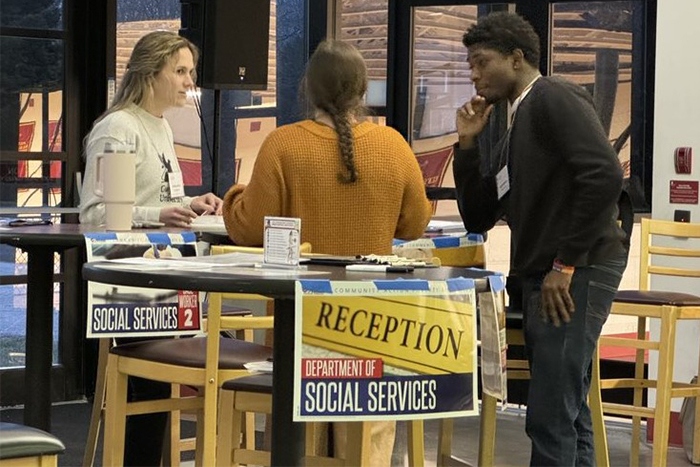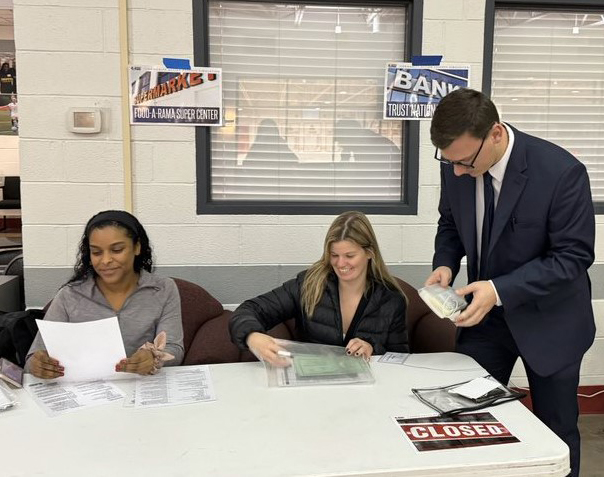BSN Students Participate in Poverty Simulation
 GMercyU’s Bachelor of Science in Nursing program held its annual poverty simulation on December 5.
GMercyU’s Bachelor of Science in Nursing program held its annual poverty simulation on December 5.
The experience was part of the NUR422 Community Health Nursing course, which emphasizes healthcare of culturally diverse individuals and families in a variety of community settings.
As a University with a Mercy mission, faculty designed the simulation to help build empathy and understanding in students for what their future patients may be living through. During the simulation, students are assigned roles of community members who are at or below the poverty level and must figure out how to make it through a week in their lives with few resources. For example, how will you feed yourself or your family with little money? How can you pay for gas to get to work? What if something unexpected happens that costs money you don’t have?
Students also played the roles of resource providers at places like the supermarket, department of social services, healthcare center, public school, interfaith services, a pawn shop, and more. In past years, these roles were played by faculty, but this year, students took over.
“The simulation was truly remarkable,” said Assistant Professor and Simulation Coordinator Megan Mustachio, MSN, RN, WCC, CHSE. “This year, we engaged all senior nursing students in pivotal roles within community services and families, and our seniors exceeded expectations. Those embodying community roles received guidance to dress authentically, and their commitment truly impressed us. The students offered invaluable insights into the professions they portrayed. For instance, nursing students assigned to Social Services gained a profound comprehension of the Social Services role in healthcare.”
After the simulation, students gathered with faculty for a debriefing to share their feedback.
“During our debrief, students expressed encountering individuals on their toughest days, realizing the pivotal choice of making those moments better or worse for them,” Professor Mustachio said.
It sparked a deeply meaningful conversation with an overwhelming sense of 'no judgement, because you never know what someone else is going through' and 'be kind and considerate.'